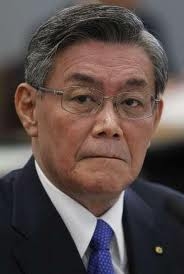
Japan to strip power monopolies of distribution and transmission assets
Japan may soon lower electricity prices and giving users a choice of provider.
A government appointed committee recommended that the 10 regional utilities, including the biggest Tokyo Electric Power Co. and Kansai Electric Power Co., should spin off distribution networks by 2018 to 2020.
The plan “would force power companies to compete on services” including electricity pricing, said Hiroshi Takahashi, one of the panel’s 11 members and a research fellow at Fujitsu Research Institute.
“Generation and distribution under the same company means utilities don’t have to improve services because customers have no choice of supplier.”
It also calls for setting up a new regulator by the end of 2015 to police competition among power producers and fully liberalizing the retail market a year later. The report next goes to Toshimitsu Motegi, the Minister of Economy, Trade and Industry, for review and is subject to change.
The utilities’ control of electricity generation, distribution and the transmission grid has been cited as one reason power tariffs in the country of 127 million people are twice those in the U.S. In response, the utilities have said the system provides stable power supply.
“It is extremely difficult to make any decision on revising the organizational structure at this time, as it would have a tremendous impact on corporate management,” Kansai Electric President Makoto Yagi, who also is the chairman of the the Federation of Electric Power Companies, said in January.
Spinning off the utility operations within five to seven years is “too slow,” Takahashi said. “No other countries spent such a long time to carry it out.”
For more.























 Advertise
Advertise






